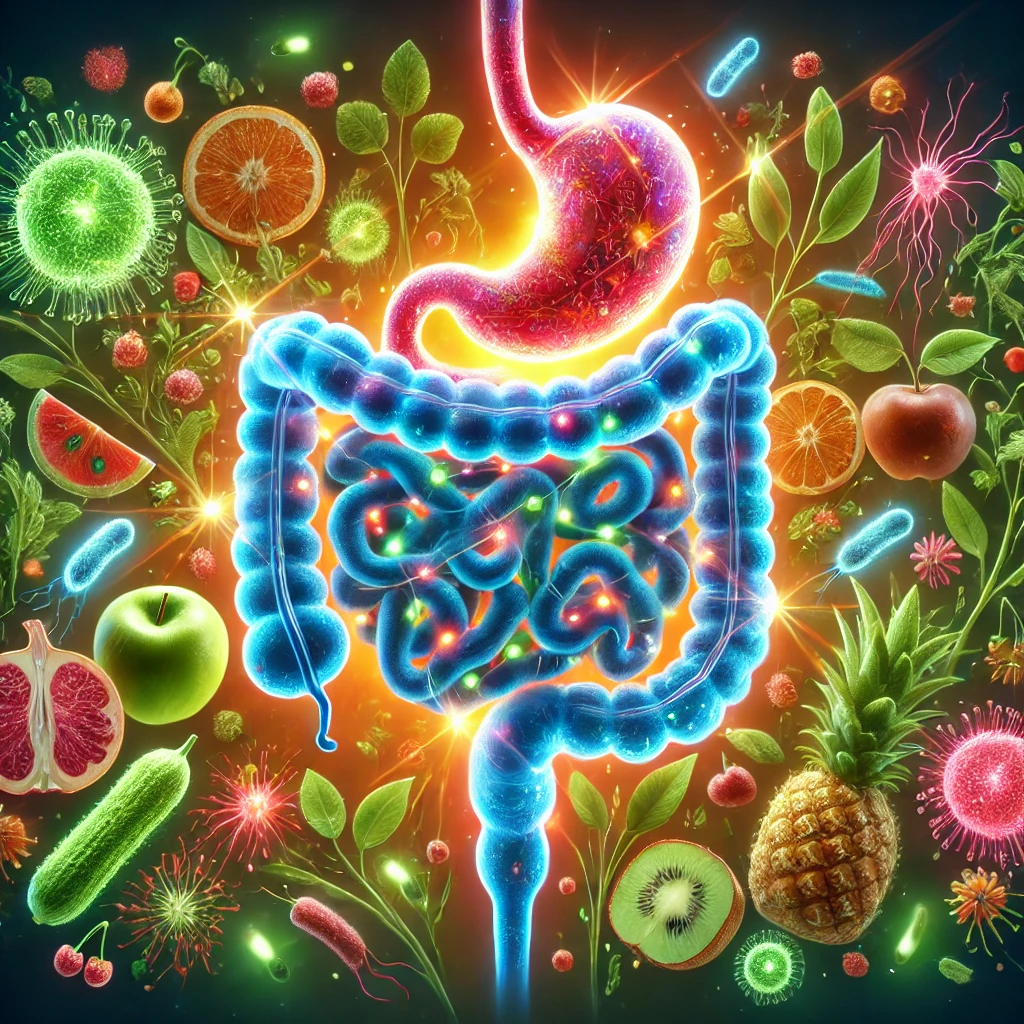Gut Health Matters: Why Your Microbiome Is the Key to Well-being
The human body is home to trillions of microorganisms, many of which reside in your digestive system, collectively known as the gut microbiome. These tiny, invisible organisms play a massive role in maintaining your overall health, impacting everything from digestion to mental clarity. Yet, the importance of gut health is often overlooked. In recent years, scientific research has unveiled the critical connection between a balanced gut microbiome and overall well-being.
What Is the Gut Microbiome?
The gut microbiome refers to the community of bacteria, viruses, fungi, and other microorganisms that live in your intestines. It is a diverse ecosystem that helps regulate many functions within the body, including digestion, immune response, and even mood regulation. Each person’s microbiome is unique, shaped by genetics, diet, lifestyle, and environment.
A healthy gut microbiome contains a variety of “good” bacteria that perform essential tasks, such as breaking down food, producing vitamins, and protecting against harmful pathogens. Conversely, an imbalance in this ecosystem, known as dysbiosis, can lead to a range of health issues, including digestive disorders, weakened immunity, and even chronic diseases like diabetes.
The Digestive System: More Than Just Digestion
While the gut is primarily known for breaking down food and absorbing nutrients, it serves many more functions. For instance, the gut produces serotonin, a neurotransmitter that regulates mood, sleep, and appetite. In fact, over 90% of serotonin is produced in the gut, linking digestive health directly to mental well-being.
Additionally, the gut plays a key role in immune function. Around 70% of your immune system resides in your gut, where good bacteria help modulate immune responses, protecting the body from harmful invaders while preventing the immune system from overreacting to non-threatening substances.
How Gut Health Affects Overall Well-being
- Improved Digestion and Nutrient Absorption
A well-balanced microbiome promotes efficient digestion, breaking down complex carbohydrates, proteins, and fats into their simpler forms. This ensures your body gets the essential nutrients it needs to function properly. A healthy gut also helps prevent digestive disorders such as bloating, constipation, and irritable bowel syndrome (IBS).
- Stronger Immune System
A robust microbiome helps build a strong defense system against illness. Beneficial bacteria in the gut act as the first line of defense, neutralizing pathogens and harmful toxins. An imbalanced gut, on the other hand, may weaken your immune system, leaving you more susceptible to infections and autoimmune diseases.
- Better Mental Health
The gut-brain axis is a bidirectional communication system between the gut and the brain, connected through the nervous system, immune system, and hormones. Studies show that an unhealthy gut can lead to mood disorders, including anxiety and depression. On the flip side, nurturing your microbiome can positively influence your mood, reduce stress, and even improve cognitive function.
- Weight Management and Metabolism
Your gut microbiome also influences your body’s metabolism and fat storage. Certain bacteria help break down food into nutrients that are stored as energy, while others aid in regulating hormones related to hunger and fullness. A diverse gut microbiome can support a healthy metabolism, while dysbiosis has been linked to obesity and metabolic disorders.
- Reduced Inflammation
Chronic inflammation is a precursor to many serious health conditions, such as heart disease, cancer, and arthritis. A balanced gut microbiome produces short-chain fatty acids (SCFAs), which have anti-inflammatory properties. These SCFAs help reduce inflammation throughout the body, protecting you from chronic diseases.
How to Improve Your Gut Health
Maintaining a healthy gut is essential for overall well-being, but how can you nurture your microbiome?
- Eat a Diverse Diet A diet rich in fiber, fruits, vegetables, and whole grains promotes a diverse gut microbiome. Fiber acts as food for the “good” bacteria in your gut, helping them thrive.
- Incorporate Probiotics and Prebiotics Probiotics are live beneficial bacteria found in fermented foods like yogurt, kefir, sauerkraut, and kimchi. Prebiotics, on the other hand, are non-digestible fibers found in foods like garlic, onions, and bananas that serve as food for these bacteria.
- Limit Processed Foods and Sugars Highly processed foods and refined sugars can promote the growth of harmful bacteria in your gut, leading to dysbiosis. Stick to whole, natural foods to maintain a balanced gut flora.
- Manage Stress Chronic stress can negatively impact gut health by altering the balance of bacteria. Practicing stress-management techniques such as meditation, deep breathing, and regular exercise can support a healthy microbiome.
- Stay Hydrated Drinking plenty of water supports digestion and promotes a healthy gut lining, which is essential for nutrient absorption and a balanced microbiome.
- Get Regular Physical Activity Exercise can increase the diversity of your gut bacteria, which is associated with better health outcomes. Regular moderate activity like walking, cycling, or swimming can promote gut health.
- Consider a Probiotic Supplement In some cases, taking a high-quality probiotic supplement may help restore balance to your microbiome, especially after a course of antibiotics.
Conclusion
Your gut microbiome is the key to your overall health and well-being. From digestion and immunity to mental clarity and mood regulation, a balanced gut is essential for maintaining optimal health. By nurturing your microbiome through a healthy diet, regular exercise, stress management, and mindful lifestyle choices, you can support a strong and resilient gut that will benefit your entire body. So, take charge of your gut health and unlock the potential for a healthier, happier life.













Recent Comments